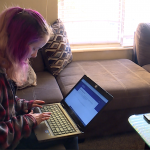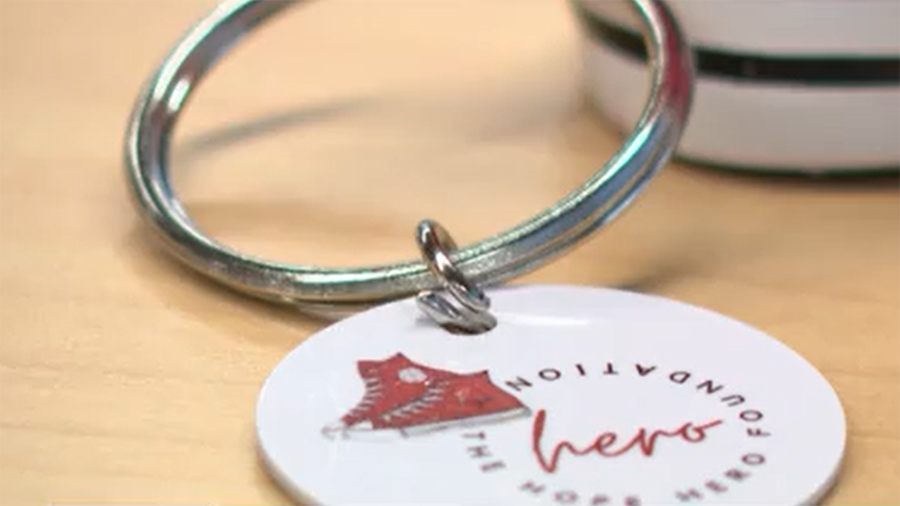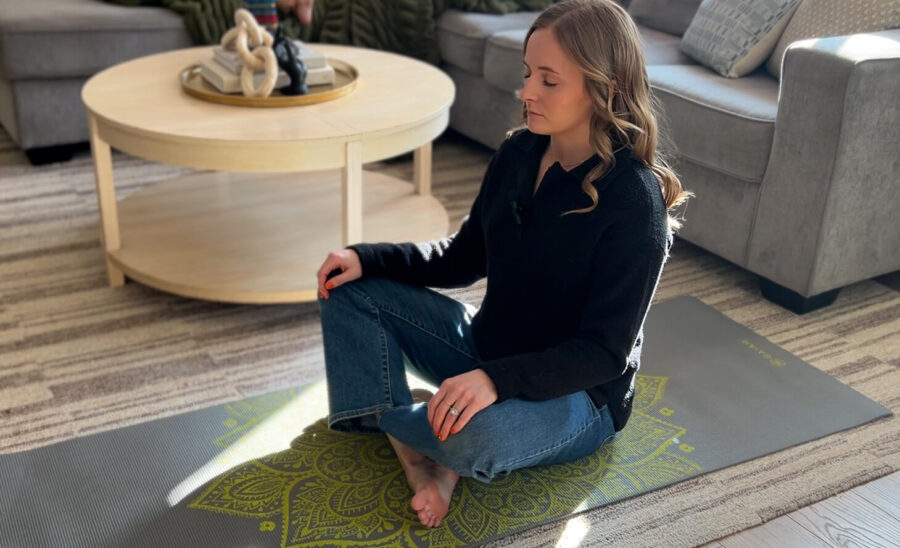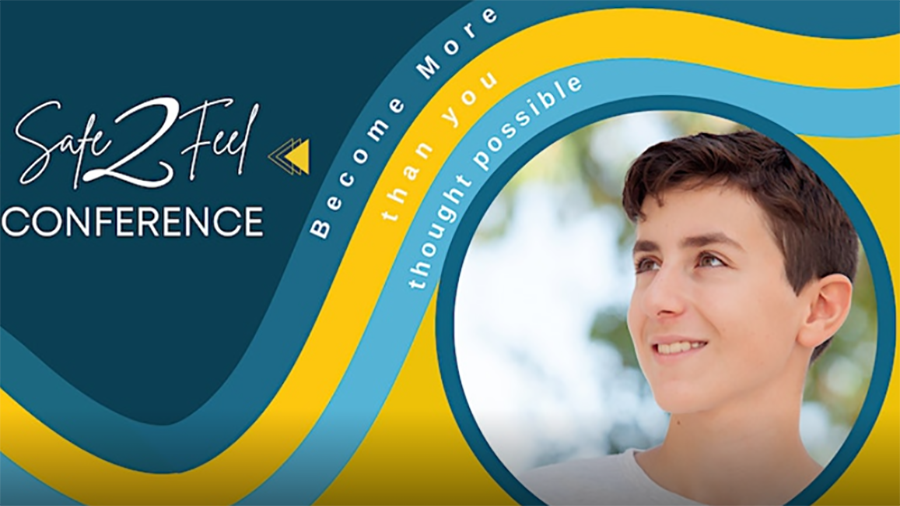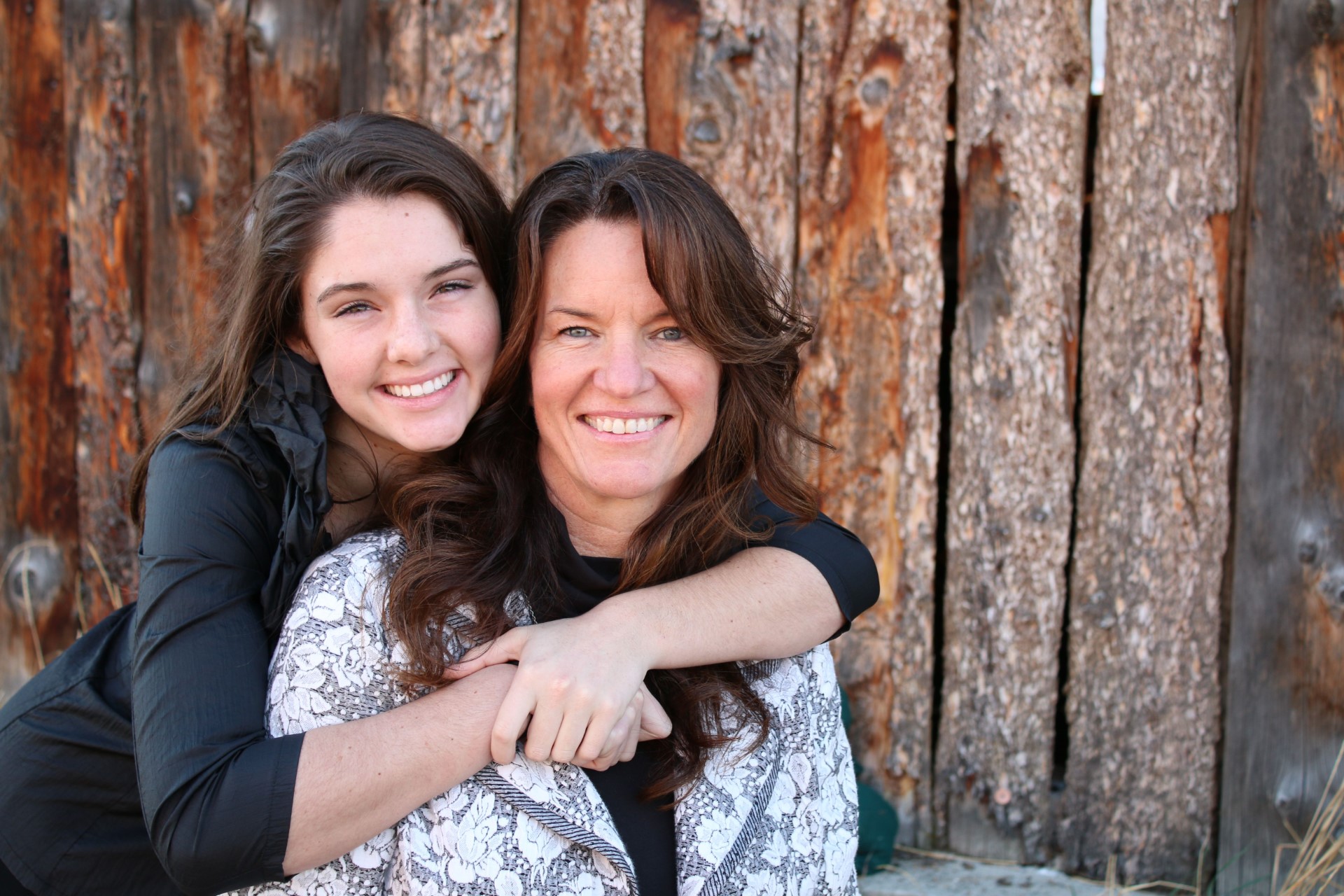Student Finds Unique Solution To Overcoming Social Media Bullying
Dec 10, 2018, 2:07 PM | Updated: 2:36 pm
SALT LAKE CITY, Utah – Seventeen-year-old Lilith Shlosman loves her rescue dog and wants to be a vet one day. “It’s always good to have someone who can comfort you without knowing a situation,” she said.
Like Sugar, Lilith hasn’t always been treated right either. She said she started getting bullied in middle school after asking out the popular boy at school.
“Him and his group of friend started talking behind my back before it spread around school,” she explained.
They used social media to harass Lilith. “I knew who they were because they didn’t bother to use anonymous accounts,” she said.
Her peers called her names like, “Hypocritical, disgusting, liar, crazy, stuff like that,” she said.
She often wondered what she did to be treated this way. “Why did this have to happen to me? I’ve done nothing wrong,” she said.
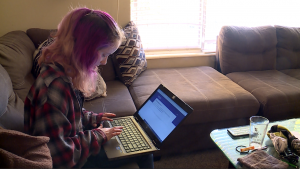
: Lilith Shlosman enrolled in a an online schooling program called Utah Virtual Academy as an alternative to attending high school in person.
About a year in, she reached an all-time low. She said she felt insignificant. She attempted to take her life. She fortunately wasn’t successful. Today Lilith is doing much better. She credits good friends and drawing as her refuge.
Today she’s also enrolled in an online schooling program called Utah Virtual Academy. She said she enjoys the liberty of working in a safe space. “I can be at home away from people. I can’t stand big socialization groups very much,” she said.
For Lilith the answer meant changing schools, but Intermountain Healthcare’s Director of Pediatric Behavioral Health at Primary Children’s Hospital, Tammer Attallah, encourages teens to find their own solution.
“We’re still social beings and so we need to be able to engage with each other,” Attallah said.
He said sheltering teens by taking away media privileges is not the answer. “Social media and our phones—it’s becoming part of the fabric of our regular communication so to actually remove that I would argue would be counterintuitive,” he explained.
Rather, Attallah said he would like to see parents help their kids develop a healthy use of these communication devices. He wants teenagers, “to lean in and to be part of this social experience rather than parents say, ‘we’re just going to have you not use that at all.’”

Tammer Attallah said taking away media privileges from your teen in not the answer to avoiding cyber bullying.
He encourages parents to watch for unusual or moody behavior, stay up-to-date on the latest apps and social platforms, know your child’s usernames and passwords, document digital bullying with screenshots, and report any form of bullying to the school or app.
In a recent 2017 survey in Utah schools, the Utah Department of Health found one out of every four 8th, 10th, and 12th graders reported being cyber bullied at some point. Additionally, the study reported one out of every three girls are cyber bullied. He said bullying is on the rise.
He said, “There is definitely correlation between experiencing cyber bullying and thoughts and attempts at trying to harm oneself or even trying to [complete] suicide. So that’s a real, real, real issue.”
Attallah said as a parent you may set an expectation to have your child’s passwords, “so if something happens you can look into their system and see what’s going on.” He said monitoring your child’s accounts is important, but that it’s even more important to do that “in the context of having an open conversation with your child about that.”
“I’m a big fan of being really upfront with the kids about this. It’s not intended to be secretive, but rather I want to make sure that you are safe and there are a lot of things that can happen in social media and in our environment that may not be safe,” Attallah said.
He suggested you might say to your child, “I want to be in a place to actually support you if there is a concern that may be happening.”
Attallah said it’s impossible for a parent to help their child without the right resources.
“You want to make sure that you as a parent have the knowledge and information to help identify risks that are happening and to help them be safe,” Attallah urged.
Lilith agrees that teenagers need a confidant to talk with—whether that be a parents or a trusted friend. She wishes others knew what she knows now. She encourages people also struggling with bullying, depression, or suicidal ideation to hang on.
“I think that they should hold out more because it will get better,” Lilith said.
Attallah encourages families to use the Safe UT app to report cyberbullying and to seek professional mental counseling if bullying is inhibiting your child’s ability to function.
He also reminds teens that when a mean or inappropriate comment is posted online, it could stay there indefinitely.
“I don’t think kids realize that when something gets post at times, it can stay in perpetuity. It could impact their opportunity to get into schools in the future and colleges [and] getting jobs. It’s become more and more common that employers and schools are looking at their digital footprint,” he warned.



